Hey – you got series review in my first impressions week…
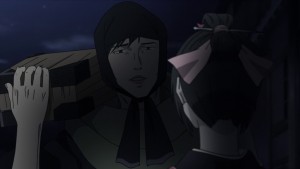 Talk about a stealth series, that was Onihei. Not only did it stream in the relative exile of Amazon (who seem to have adopted the strategy of airing an anime and then not telling anyone about it), it was a complete whiff when it comes to every conceivable marketing avenue. I’m not sure Maruyama-sama really gives a damn (he’s been around long enough to know which way the wind blows), but it’s a shame more people didn’t give this series a chance because it was one of the best of the winter season (admittedly a weak one, but even so).
Talk about a stealth series, that was Onihei. Not only did it stream in the relative exile of Amazon (who seem to have adopted the strategy of airing an anime and then not telling anyone about it), it was a complete whiff when it comes to every conceivable marketing avenue. I’m not sure Maruyama-sama really gives a damn (he’s been around long enough to know which way the wind blows), but it’s a shame more people didn’t give this series a chance because it was one of the best of the winter season (admittedly a weak one, but even so).
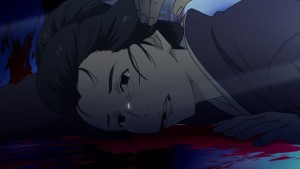 Onihei has been an episodic show from the beginning, a serial in the truest sense of the word. Sometimes those kinds of series will change course and go for a true ending, but Onihei certainly wasn’t one of them. The story we got this week was undeniably one of the weightiest, and arguably the best, but if it had aired as the fifth or ninth episode it wouldn’t have felt out of place. These eps were snapshots in time – and once the shutter clicked for the thirteenth time, it’s easy to assume life for Heizou and his team kept right on going, and we just won’t be around to see it.
Onihei has been an episodic show from the beginning, a serial in the truest sense of the word. Sometimes those kinds of series will change course and go for a true ending, but Onihei certainly wasn’t one of them. The story we got this week was undeniably one of the weightiest, and arguably the best, but if it had aired as the fifth or ninth episode it wouldn’t have felt out of place. These eps were snapshots in time – and once the shutter clicked for the thirteenth time, it’s easy to assume life for Heizou and his team kept right on going, and we just won’t be around to see it.
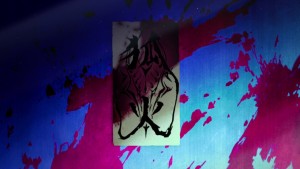 One of the great joys of Onihei is to hear great voice actors – many of whom rarely work these days – show off their formidable chops. And this week was no exception. It was a welcome showcase for series regular Romi Paku, and she was played off against Yamadera Kouichi and Yao Kazuki, two of the most distinctive seiyuu in the business. They play a pair of brothers, scions of a clan of thieves from Hanshin called Kitsunebi (Will-o-the-wisp – or more correctly, “Fox Lights”). It’s a joy to hear these three greats at work, especially when they’re sharing the screen.
One of the great joys of Onihei is to hear great voice actors – many of whom rarely work these days – show off their formidable chops. And this week was no exception. It was a welcome showcase for series regular Romi Paku, and she was played off against Yamadera Kouichi and Yao Kazuki, two of the most distinctive seiyuu in the business. They play a pair of brothers, scions of a clan of thieves from Hanshin called Kitsunebi (Will-o-the-wisp – or more correctly, “Fox Lights”). It’s a joy to hear these three greats at work, especially when they’re sharing the screen.
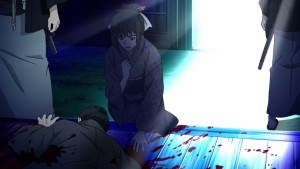 As with many Onihei serials, this is one of those tales as old as time – two brothers, one legitimate and the other not, wrestling for control over a family dynasty. That it’s a thievery ring is moot in this day and age – it’s more like a family business by modern standards. Yamadera plays the elder brother, Matataro – he born of a concubine but otherwise the favored brother. Yao is Bunkichi, a legitimate son always in the shadow of his illegitimate but smarter, nobler and better-looking sibling. When their father dies he leaves the business to Matataro, who shares his commitment to the three tenets of “noble” thieving – do not kill, rape or steal from the poor. But Bunkichi is displeased with this approach – and pretty much everything else – and heads to Edo with a gang of mercenaries, violating all three principles with abandon in Kitsunebi’s name.
As with many Onihei serials, this is one of those tales as old as time – two brothers, one legitimate and the other not, wrestling for control over a family dynasty. That it’s a thievery ring is moot in this day and age – it’s more like a family business by modern standards. Yamadera plays the elder brother, Matataro – he born of a concubine but otherwise the favored brother. Yao is Bunkichi, a legitimate son always in the shadow of his illegitimate but smarter, nobler and better-looking sibling. When their father dies he leaves the business to Matataro, who shares his commitment to the three tenets of “noble” thieving – do not kill, rape or steal from the poor. But Bunkichi is displeased with this approach – and pretty much everything else – and heads to Edo with a gang of mercenaries, violating all three principles with abandon in Kitsunebi’s name.
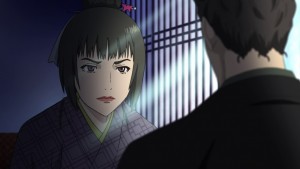 It so happens that Matataro was also Omasa’s lover, which immediately places her in an uncomfortable position when Team Heizou mobilizes against Kitsunebi. Patterns repeat in Onihei, and one of them is that most of the “good guys” have pasts – pasts they’re not necessarily proud of, but not necessarily ashamed of either. Omasa knows in her heart that Matataro could never do the things Kitsunebi is doing in Edo, but you can see the hesitation in Heizou as he deals with her – he wonders if her love for her man is blinding her to what he might be capable of. It’s a sexist suspicion, of course, but not remotely out of place given the setting.
It so happens that Matataro was also Omasa’s lover, which immediately places her in an uncomfortable position when Team Heizou mobilizes against Kitsunebi. Patterns repeat in Onihei, and one of them is that most of the “good guys” have pasts – pasts they’re not necessarily proud of, but not necessarily ashamed of either. Omasa knows in her heart that Matataro could never do the things Kitsunebi is doing in Edo, but you can see the hesitation in Heizou as he deals with her – he wonders if her love for her man is blinding her to what he might be capable of. It’s a sexist suspicion, of course, but not remotely out of place given the setting.
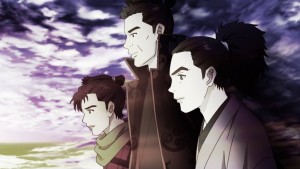 There are heavy stakes involved in this premise, and for Omasa’s part it’s clear she still loves Matataro unreservedly (and he her). What Matataro wants – to “reform” his brother – is clearly never going to happen. But it would be against his nature not to make the effort, even at the risk of his own life and Omasa’s (though he tries to dissuade her from joining him). The interesting moment comes in the aftermath, with the Arson & Theft patrol arrives on scene and routs Bunkichi’s men. Once again Heizou is faced with a choice, and once again he chooses compassion over the law – though the grace he grants to Omasa and Matataro is sadly short-lived. Heizou too is true to himself right to the end.
There are heavy stakes involved in this premise, and for Omasa’s part it’s clear she still loves Matataro unreservedly (and he her). What Matataro wants – to “reform” his brother – is clearly never going to happen. But it would be against his nature not to make the effort, even at the risk of his own life and Omasa’s (though he tries to dissuade her from joining him). The interesting moment comes in the aftermath, with the Arson & Theft patrol arrives on scene and routs Bunkichi’s men. Once again Heizou is faced with a choice, and once again he chooses compassion over the law – though the grace he grants to Omasa and Matataro is sadly short-lived. Heizou too is true to himself right to the end.
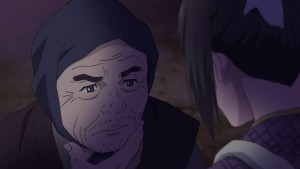 Of course, I’ll be very interested to see where Studio M2 goes from here. I think it’s pretty safe to assume Maruyama Masao intends to use it to pursue resolutely uncommercial projects in whatever time he has left, leaving MAPPA (which likewise started out as a more independent voice than the corporate-owned but Maruyama-founded Madhouse) to the more mainstream material. I can’t imagine there’s anyone else in anime who’s founded three studios more or less on his own, and it’s obvious that Maruyama’s legacy is assured. Yet he continues to restlessly pursue his artistic vision in an anime landscape increasingly hostile to it, and for that (among other things) I hold him in boundless admiration. Onihei would never have been made without that restless spirit, and anime would be a poorer place without it.
Of course, I’ll be very interested to see where Studio M2 goes from here. I think it’s pretty safe to assume Maruyama Masao intends to use it to pursue resolutely uncommercial projects in whatever time he has left, leaving MAPPA (which likewise started out as a more independent voice than the corporate-owned but Maruyama-founded Madhouse) to the more mainstream material. I can’t imagine there’s anyone else in anime who’s founded three studios more or less on his own, and it’s obvious that Maruyama’s legacy is assured. Yet he continues to restlessly pursue his artistic vision in an anime landscape increasingly hostile to it, and for that (among other things) I hold him in boundless admiration. Onihei would never have been made without that restless spirit, and anime would be a poorer place without it.


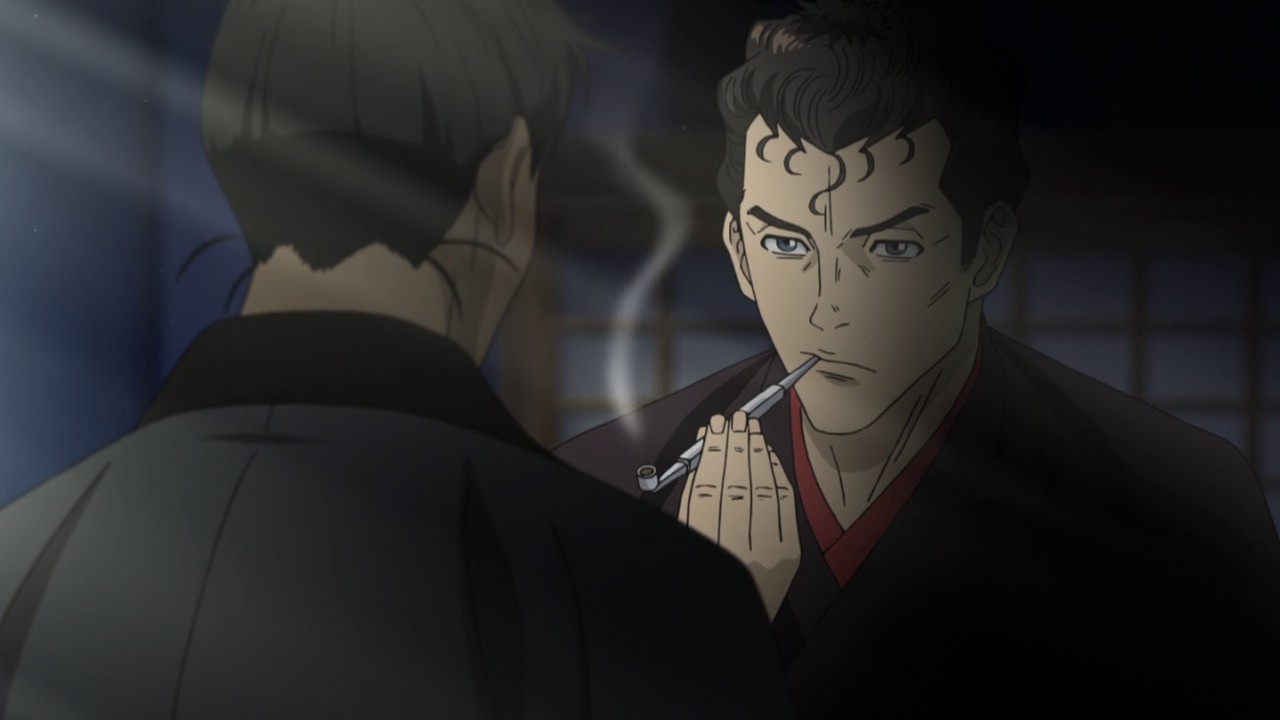
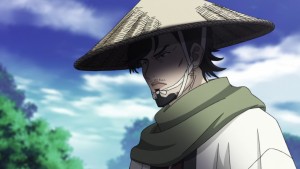
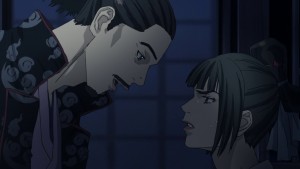
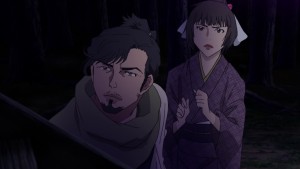
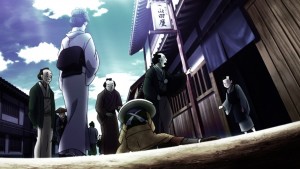
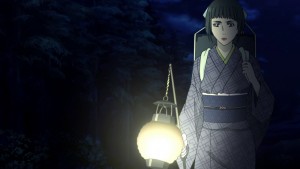
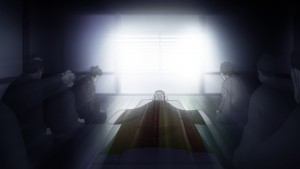
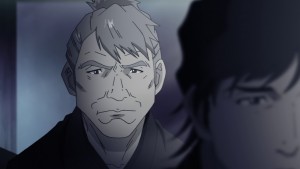
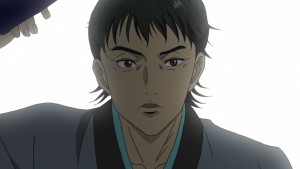
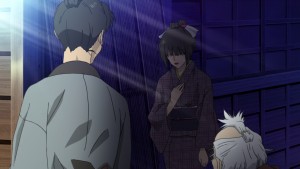
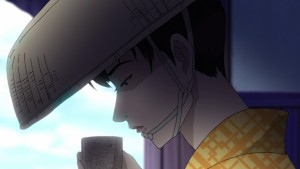
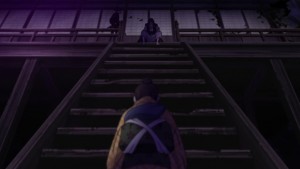
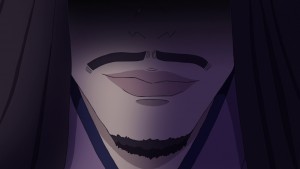
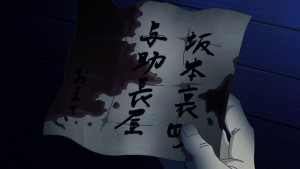
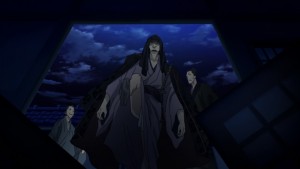
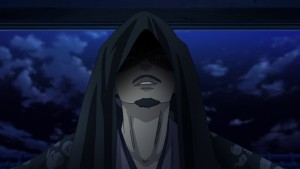
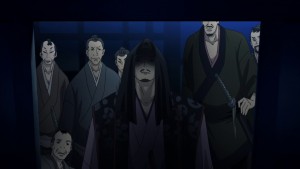
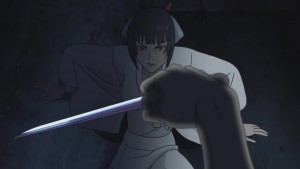
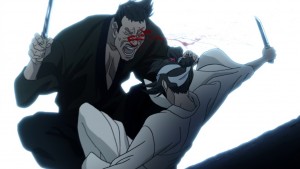
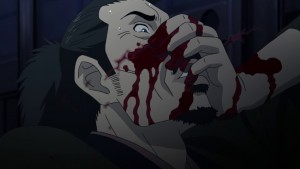
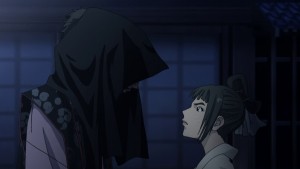
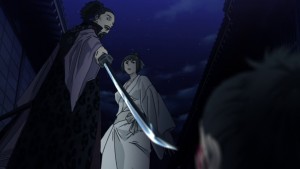
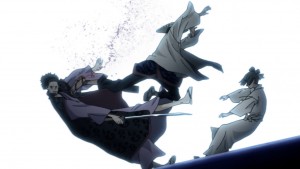
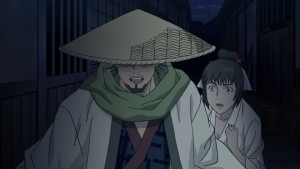
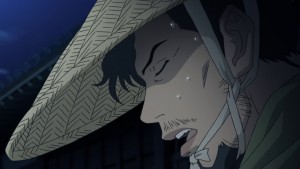
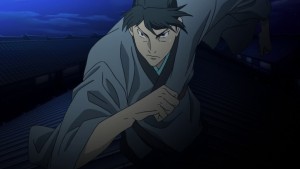
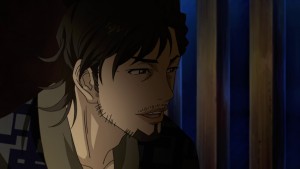
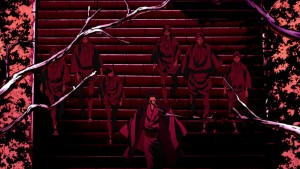
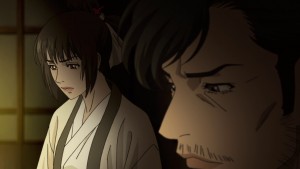
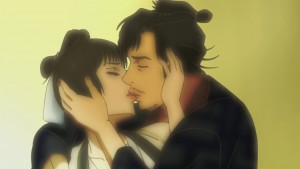

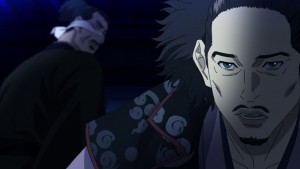
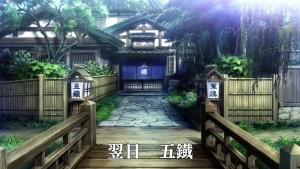
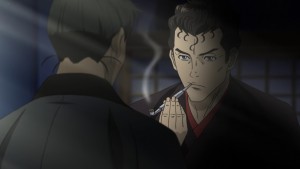
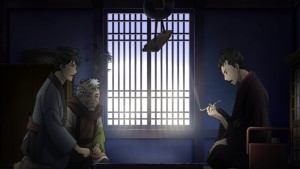
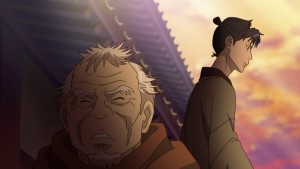
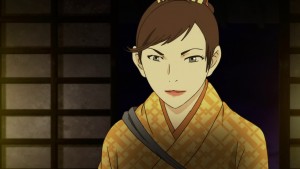
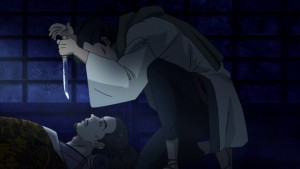
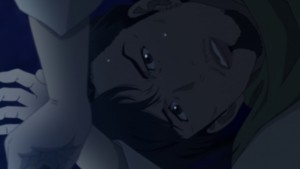

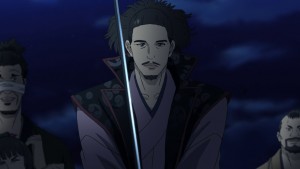
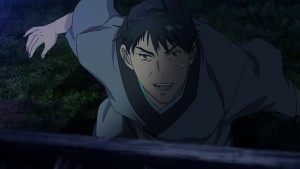
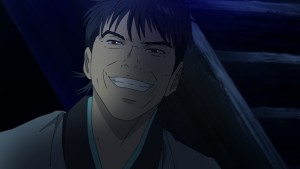
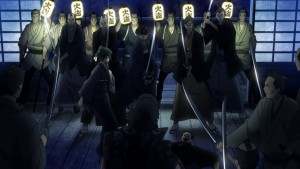
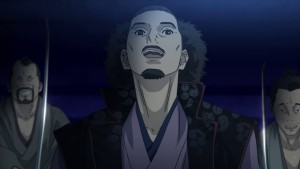
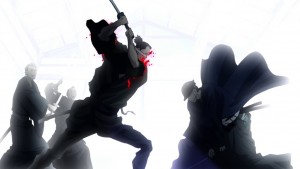
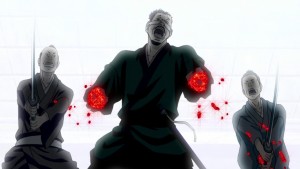
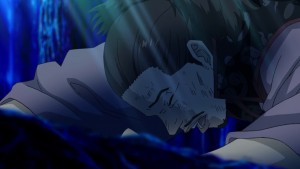
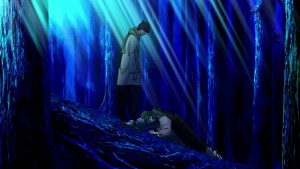
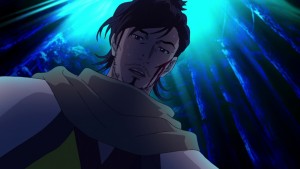
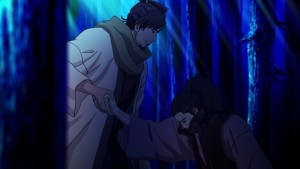
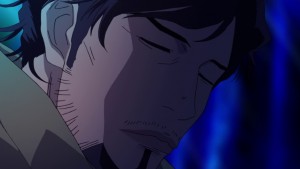
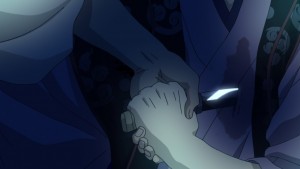
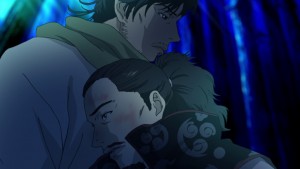
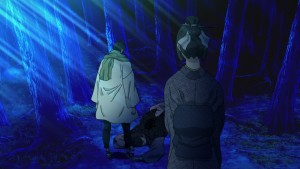
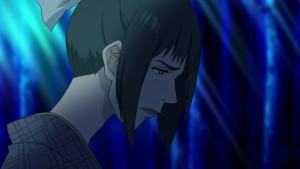
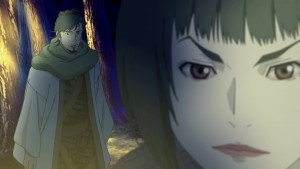
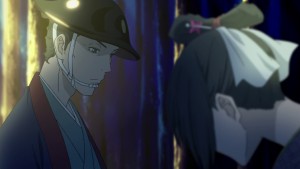
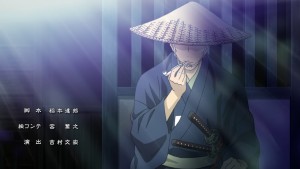
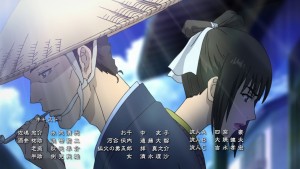
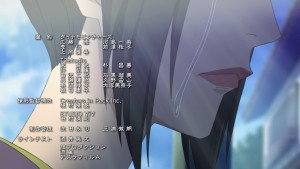
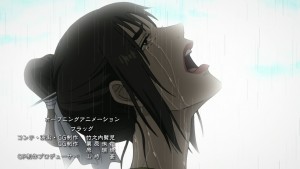
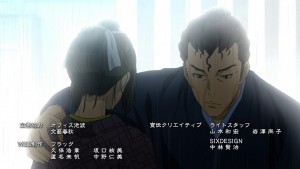
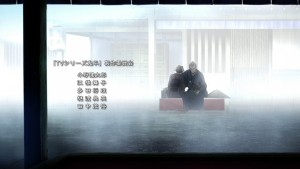
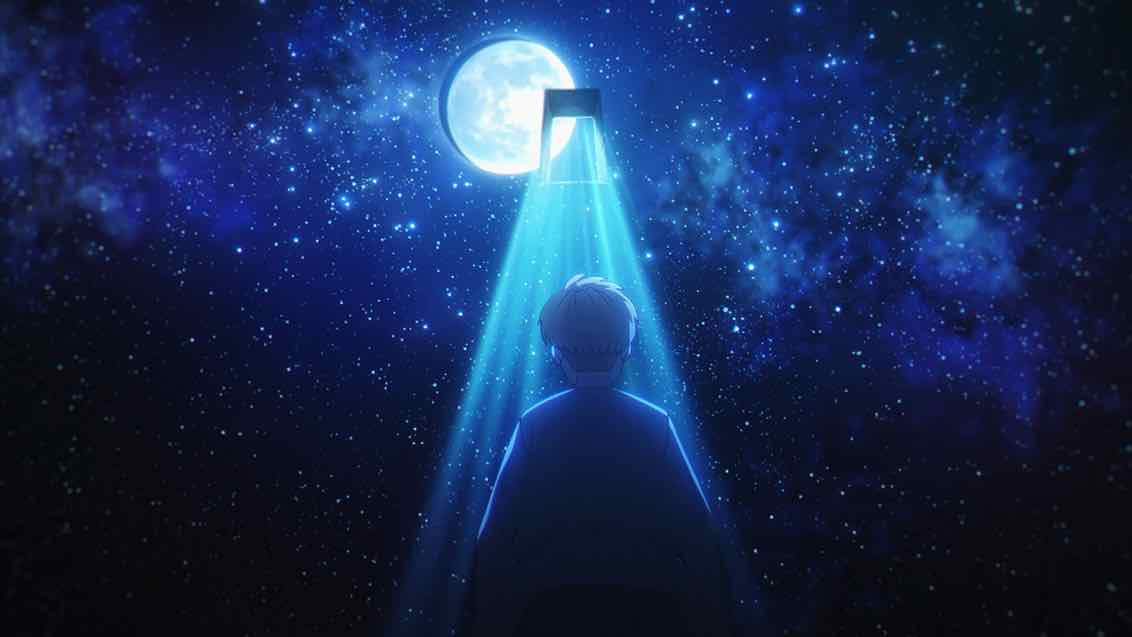

Dop
April 7, 2017 at 2:39 amIt’s been a reliably good serial but sadly neglected, and it’s been good to read your posts about it each week as you were one of the few people posting anything about it at all. A unique style of show in this day and age, and all the better for it.
Always liked the moral complexity of the characters, the shades of grey, the way everyone had a past but that was just what made them who they are.
Zilla
April 7, 2017 at 12:28 pmI enjoyed it all the way through. It was lovely, and very “shades of grey” in morality.
Earthlingzing
April 10, 2017 at 4:46 amOnihei may be predictable, but it always manages to end so satisfyingly.
Bletcher
July 21, 2018 at 10:21 pmI really enjoyed the series, but the subtitles cut out on Amazon right at the end, and I am sure Omasa heard bad news, but I have no idea what it was. Any help would be great.
New mana
November 30, 2018 at 5:00 pmi couldn’t understand , is matataro killed at the end ?
New mana
November 30, 2018 at 5:05 pmwho was the actor of Bunkichi, please ?
Guardian Enzo
November 30, 2018 at 5:34 pmThat would be Kazuki Yao.